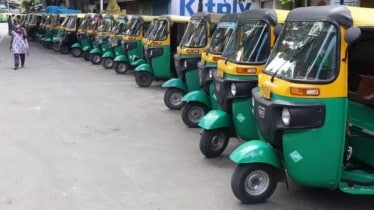The Indian Auto LPG Coalition (IAC) has blamed “unfriendly” regulations of the ministry of road transport and highways (MoRTH) for stagnancy in auto LPG segment despite it being the world’s most popular fuel after petrol and diesel.
“MoRTH has gone in complete variance with the globally accepted norms for the type approvals,” IAC director general Suyash Gupta said. The number of kit type approval holders has fallen from around 30 to two in past 10 years.
Gupta said that despite LPG having a global warming potential factor of zero and cost of LPG conversion being half of the CNG conversion, the world’s most widely used alternative fuel has failed to make a mark on Indian roads.
“It takes Rs 15-20 crore to get one type approval from International Centre for Automotive Technology (ICAT) or Automotive Research Association of India (ARAI). And, it has to be renewed every three years even if the equipment type remains the same, unlike global norms,” he said.
While Maruti and Hyundai stopped producing LPG variants some years back, even the conversions have fallen over the years. Currently, it’s only TVS and Bajaj that offer LPG powered three-wheelers that are popular in south India.
“About 40% of all private cars in Turkey run on LPG, in India it is less than 1%. Of the 300 million vehicles in India only 2.5 million vehicles run on LPG. While shift to electric vehicles is good but what happens to the existing vehicles? Converting even a small proportion of these to LPG vehicles will massively reduce carbon emission as LPG is cleaner than even BS6 petrol,” he said.
Suggesting that auto LPG vehicles are a low hanging fruit to reduce running costs and improve air quality, Gupta said that both the original equipment manufacturers (OEMs) and the government are caught in the narrative of electric and CNG, and hence have various incentives to promote these.
“Auto LPG, which is taxed at 18% GST, has never been subsidized but in both CNG and electric regime the government is helping in terms of direct and indirect subsidies,” he said. LPG stations can be put up very quickly and refilling the liquid fuel in vehicles is much faster than CNG, he added.
Eight of the 10 largest car manufacturers in the world produce LPG powered cars, and global consumption of auto LPG has risen by over 40% over the past 10 years, as per IAC data.
“OEMs need to be more sensitive. If Maruti, Hyundai and others launch just one variant each or if the MoRTH asks all the manufacturers to have at least one variant from all alternative fuels, things can pick up,” said Gupta.
